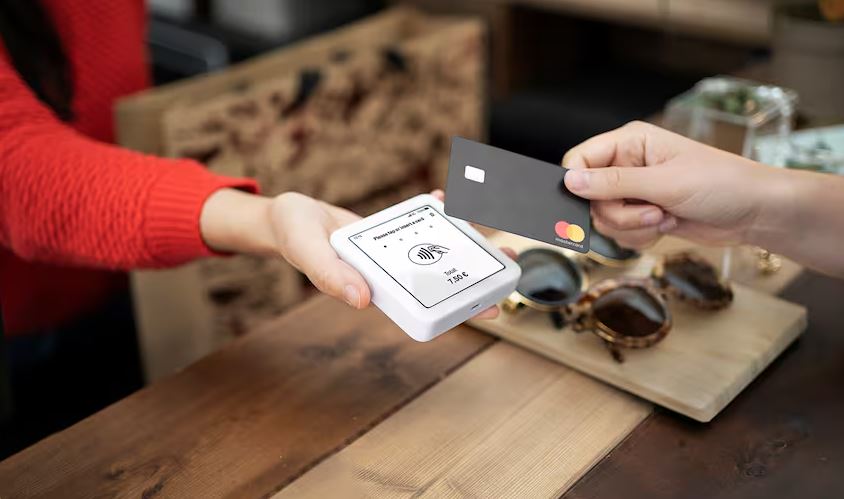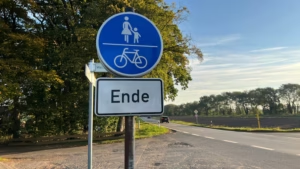Ulrich Wolf
Dresden/Frankfurt am Main. Junge Leute in Ostdeutschland verabschieden sich zunehmend vom Bezahlen mit Bargeld. Das zeigt die repräsentative Studie „Bezahlen ohne Grenzen?“, die im Auftrag der Finanzdienstleister Mastercard aus den USA sowie Sum-Up aus Großbritannien erstellt wurde.
Affin gegenüber bargeldlosen Zahlungen seien vor allem Konsumenten im Osten und Süden der Bundesrepublik, in jüngeren Altersgruppen und in Städten. Von Greifswald bis Zittau wolle fast jeder zweite Verbraucher (47 Prozent) am liebsten immer mit Karte zahlen, hieß es. Ähnlich hoch sei dieser Wert in Süddeutschland, während der Norden und der West teils deutlich darunter lägen.
Im Osten und im Süden gaben der Studie zufolge zudem 37 Prozent der Befragten an, dass sie verärgert sind, wenn sie nicht bargeldlos zahlen könnten. Bei den Städtern sind es bundesweit sogar 48 Prozent. Bei den 25- bis 34-Jährigen liegt der Wert bei 47 Prozent, bei den 35- bis 44-Jährigen sind es 50 Prozent. Im Vergleich dazu liegt der Wert bei den 55- bis 65-Jährigen bei nur 31 Prozent.

Quelle: dpa-Zentralbild
Als Hauptgrund, mit Karte oder digital zu bezahlen, geben 79 Prozent der Befragten Bequemlichkeit an. Mastercard zufolge riskieren Unternehmen, die sich digitalen Bezahlmethoden verweigern, „ein erhebliches Umsatzpotenzial“, insbesondere bei urbanen und jüngeren Konsumenten. Peter Robejsek, Geschäftsführer bei Mastercard Deutschland, urteilt: „In einer Welt, in der die Erwartungen an Komfort und Flexibilität ständig steigen, müssen wir mehr bargeldlose Zahlungsmöglichkeiten anbieten.“
Allerdings kassieren Zahlungsdienstleister wie Mastercard auch bei den Händlern ab: Für jede Nutzung fällt nach Angaben der Kölner BE Bezahlexperten GmbH eine Transaktionsgebühr an, die bei sieben Cent beginnt. Ferner fallen weitere Kosten an: bei Debitkarten rund 0,9 Prozent vom Zahlungsbetrag, bei Kreditkarten etwa 1,2 Prozent. Die Händler zahlen zudem eine Terminalmiete sowie eine monatliche Servicepauschale.
Für die Mastercard-Sum-Up-Studie wurden die Antworten von zwei repräsentativen Online-Befragungen von über 1.000 Verbrauchern sowie über 500 Entscheidungsträger in Unternehmen in Deutschland untersucht und gegenübergestellt.
Eine weitere Studie der Bundesbank vom Sommer dieses Jahres kommt zu dem Ergebnis, dass Bargeld zumindest noch 2023 das meistgenutzte Zahlungsmittel an der Ladenkasse war. Jedoch nähmen Karte und mobiles Bezahlen deutlich zu, während der Anteil der Barzahlungen sinke.
Bundesbankvorstand Burkhard Balz betont, im Vergleich zur Erhebung von 2021 sei der Anteil der Barzahlungen von 58 auf 51 Prozent gesunken. Nach Corona seien die Bürger „nur zum Teil zu ihren früheren Zahlungsgewohnheiten zurückgekehrt“. Gemessen am Umsatz lag die Debitkarte mit einem Anteil von 32 Prozent der Gesamtausgaben klar auf dem ersten Platz, Bargeld folgte mit 26 Prozent an zweiter Stelle vor Überweisungen und Internetbezahlverfahren wie Paypal, Klarna oder Giropay.
Den Befürchtungen, Bargeld werde über kurz oder lang gänzlich abgeschafft, trat Balz entgegen. Die Bundesbank wolle Bargeld als kostengünstiges Zahlungsmittel verfügbar halten, versichert Balz. „Bargeld ist und bleibt unser physisches Kernprodukt.“








